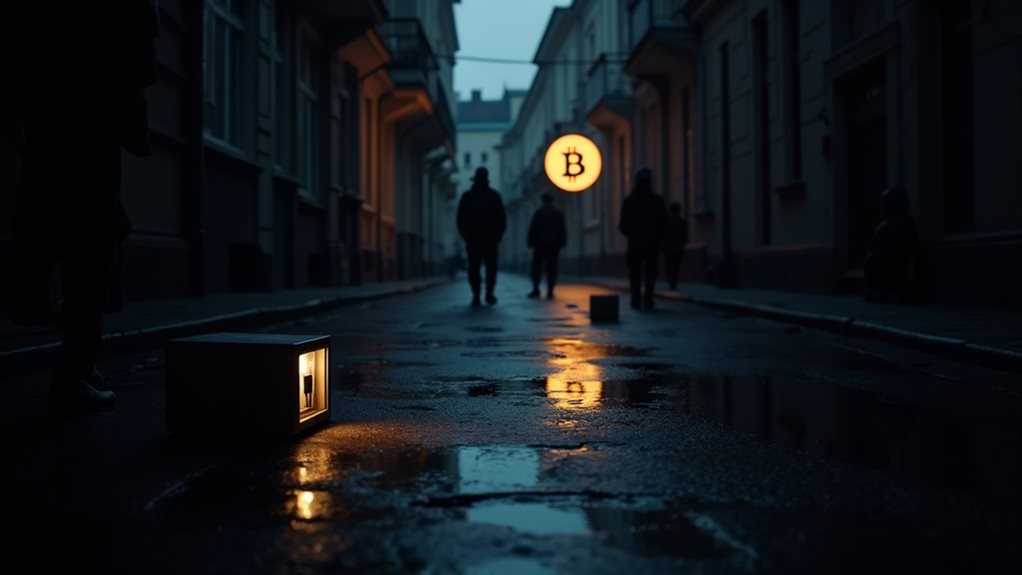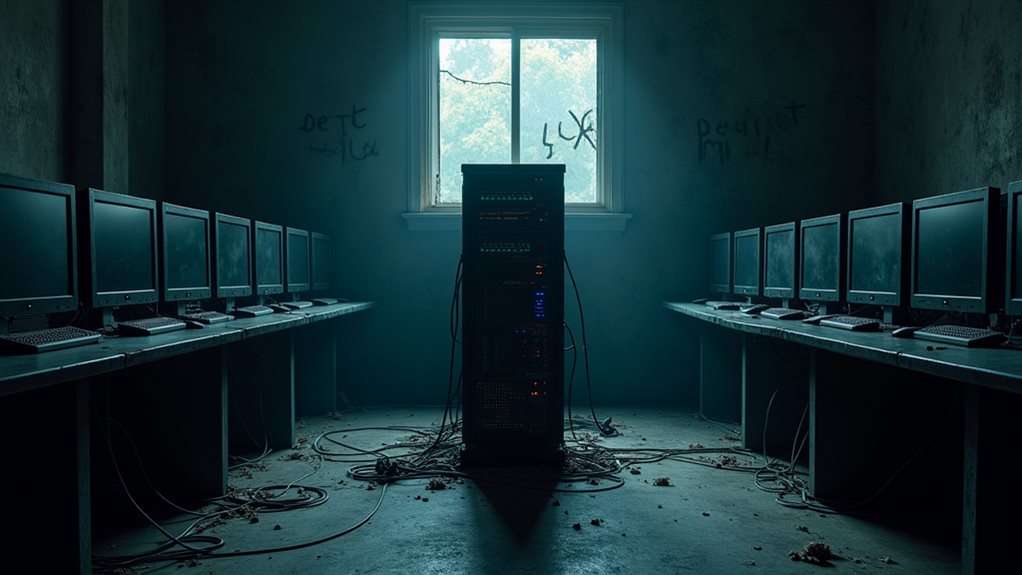Russian darknet markets crushed it in 2024, dominating 97% of crypto drug sales with a massive $1.65 billion haul. While Western markets collapsed in chaos, Russian platforms stayed rock-solid through smart tactics like dead drops and synthetic drug focus. Their secret sauce? Actually letting users withdraw funds before voluntary shutdowns – imagine that. No drama, no exit scams, just ruthlessly efficient operations. There’s more to this dark success story than meets the eye.

While Western darknet markets struggled with chaos and collapse in 2024, Russian-language platforms dominated the crypto drug trade with ruthless efficiency. The numbers tell the brutal truth: Russian markets controlled a staggering 97% of crypto-related illicit drug sales on Bitcoin and TRON networks, raking in $1.65 billion out of $1.7 billion in total transactions.
Russian markets pulled this off with a simple formula – stability and trust. Unlike their Western counterparts, which kept imploding in exit scams and law enforcement takedowns, Russian platforms stayed eerily consistent. Only four Russian marketplaces shut down in 2024, and they did it voluntarily. No drama, no stolen funds, no angry users left holding worthless crypto. The platforms maintained user confidence by ensuring customers could withdraw their funds before any planned shutdowns.
Russian darknet markets dominated through reliability, while Western platforms collapsed in scandals and raids, leaving chaos in their wake.
The secret sauce? Dead drops, synthetic drugs, and cheap Chinese chemicals. Russian vendors mastered the art of contactless delivery, leaving products in hidden locations for buyers to retrieve. They focused on synthetic drugs like alpha-PVP and mephedrone, which are easier to produce and more profitable than traditional narcotics. And thanks to an endless supply of cheap precursor chemicals from China, their profit margins stayed fat. These operations were often linked to Russian-speaking cyber groups who dominated the broader cybercrime landscape.
The contrast with Western markets is almost comical. While Russian platforms hummed along like well-oiled machines, Western marketplaces were a dumpster fire of exit scams and police raids. User confidence tanked as one platform after another went dark, often taking customer funds with them.
Here’s the kicker – all this crypto drug trade still represents less than 1% of global illicit drug transactions. But in the digital underground, Russian markets reign supreme. Their relative freedom from law enforcement pressure, combined with their disciplined approach to market operations, has created an empire of efficiency in the shadowy corners of the internet.
It’s a reflection of how organized crime adapts and thrives in the digital age, whether we like it or not.









